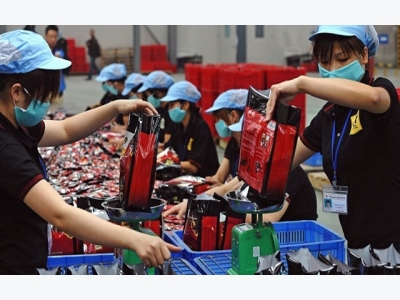ADB: Agriculture reform vital for Vietnam to lift growth

A transformation of Viet Nam’s agriculture sector is vital for lifting growth and enabling Viet Nam to graduate to upper-middle-income status, the Asian Development Bank (ADB) said in a new flagship report launched today.
The Asian Development Outlook (ADO) 2017 forecasts Viet Nam’s economy to grow by 6.5% in 2017 and 6.7% in 2018, as a result of rising activity in the manufacturing, construction, wholesale and retail trade, banking and tourism sectors.
The report notes that continued record levels of foreign direct investment will boost domestic manufacturing while at the same time helping to lift Viet Nam’s export earnings even though global and regional trade flows will remain depressed. Viet Nam’s rapidly expanding middle-class, which is expected to double in size by 2030 to 33 million, will also help to push up consumer spending and boost retail activity.
Agricultural output is expected to pick up modestly in 2017 given the outlook for higher global food prices and a return to more normal weather. However the report highlights that the sector continues to underperform relative to the rest of the Vietnamese economy, dragging down overall growth.
“Agriculture has been a significant driver of growth, poverty reduction, food security, and exports since government began reforming the sector in the late 1980s”, said Eric Sidgwick, ADB Country Director for Viet Nam. “However, in recent years, in the face of growing international competition and low domestic labor productivity, the sector’s growth has slowed to an average of just 2% per annum since 2011.”
The report highlights that agriculture output per worker in Viet Nam is one-third of Indonesia’s and less than half of Thailand’s and the Philippines’. The report also emphasizes that as Viet Nam recovers from its most severe drought in a decade, boosting growth in the agriculture sector will be vital for Viet Nam to achieve its aspirations of becoming an upper-middle income country.
“While Viet Nam continues to address the worsening impacts of climate change on agriculture, deeper reforms and higher investment in the sector will be critical to boost agricultural productivity and long-run growth that is inclusive and environmentally sustainable,” Mr. Sidgwick added.
The report stresses that to transform agriculture a number of major policy challenges will need to be addressed—including introducing greater competition into agricultural supply-chains and postharvest processing, developing rural infrastructure to support higher-value adding cash crops, adopting more sustainable natural resource management practices, and better integrating climate change considerations into policy making processes.
ADB, based in Manila, is dedicated to reducing poverty in Asia and the Pacific through inclusive economic growth, environmentally sustainable growth, and regional integration. Established in 1966, ADB is celebrating 50 years of development partnership in the region. It is owned by 67 members—48 from the region.
Có thể bạn quan tâm
 Ninh Thuan farmers make fortune with VietGap grapes
Ninh Thuan farmers make fortune with VietGap grapes Thanks to technical assistance and training from NinhThuan’s Department of Agriculture and Rural Development in recent years, many farmers in the central provin
 Vietnam's March coffee exports dip but global prices may ease on ample stocks
Vietnam's March coffee exports dip but global prices may ease on ample stocks Vietnam, the world's second largest coffee producer after Brazil, exported 168,000 tons (2.8 million bags) of the commodity in March, down nearly 7 percent
 Coffee industry in Vietnam turns bitter
Coffee industry in Vietnam turns bitter Nationwide coffee exports for 2017 are expected to fall 30% in volume with revenue climbing to US$3.35 billion